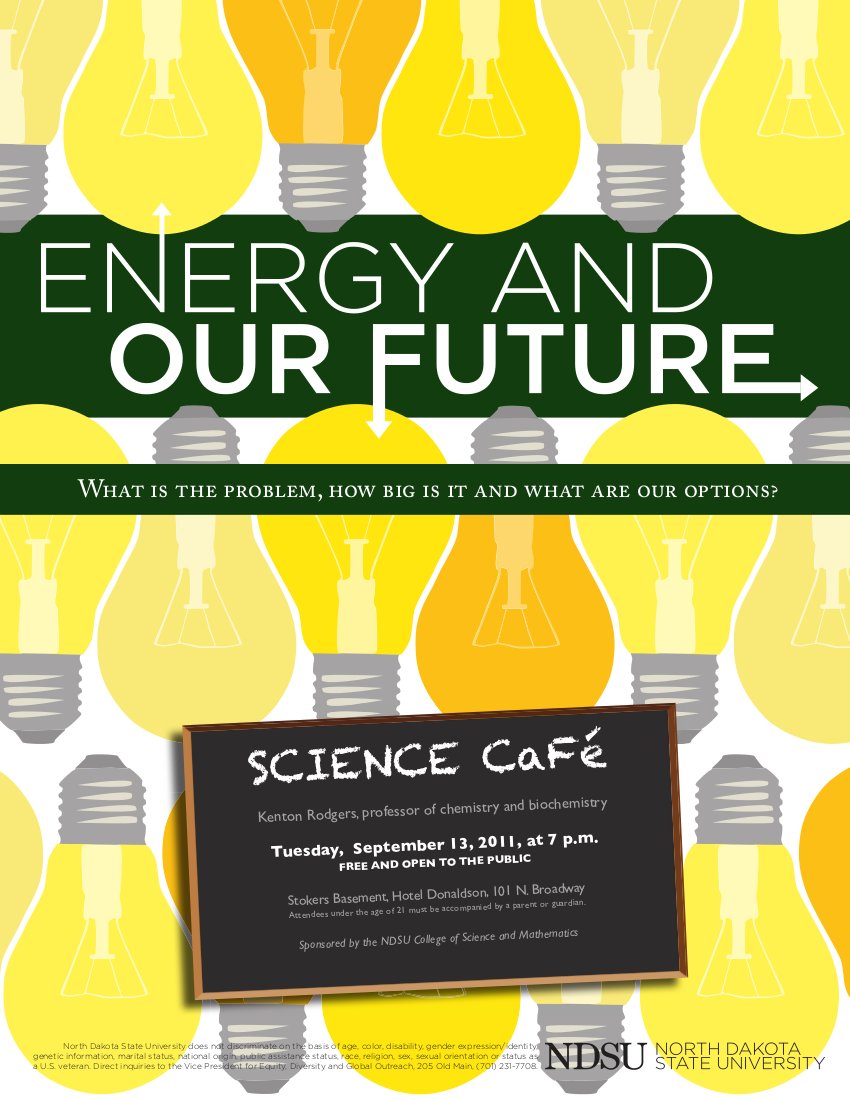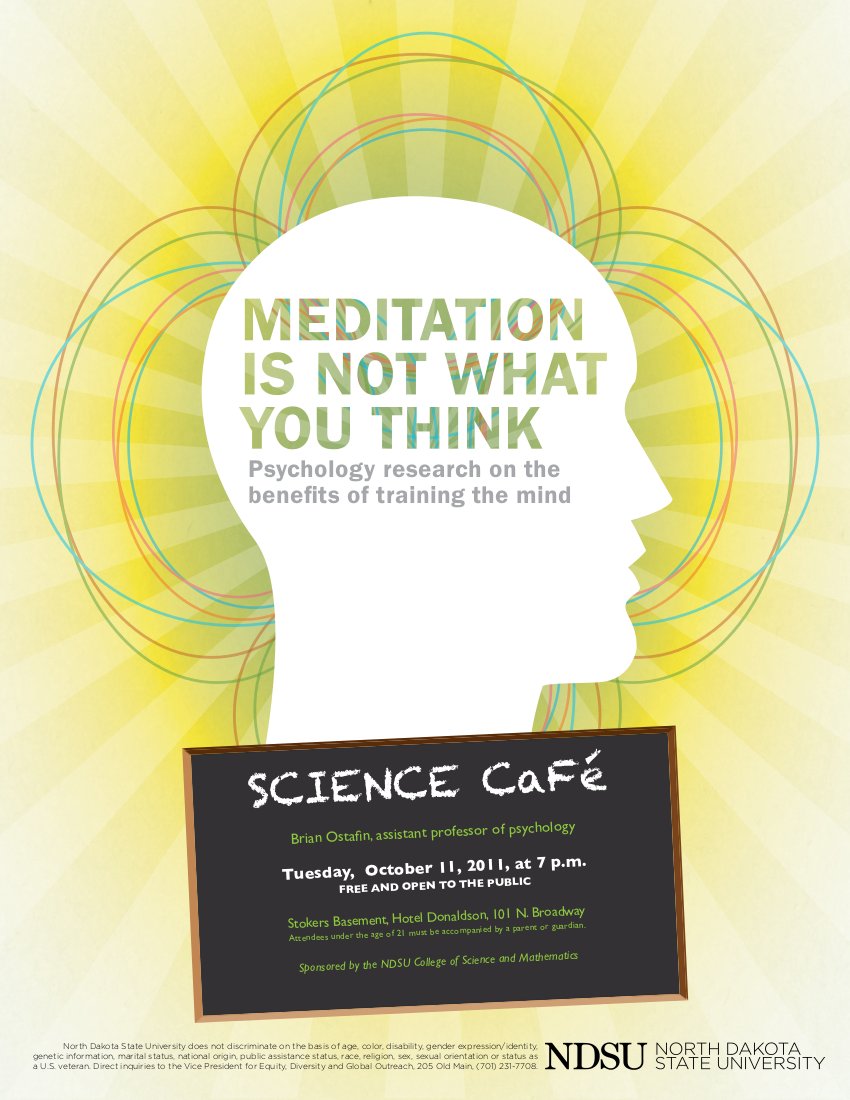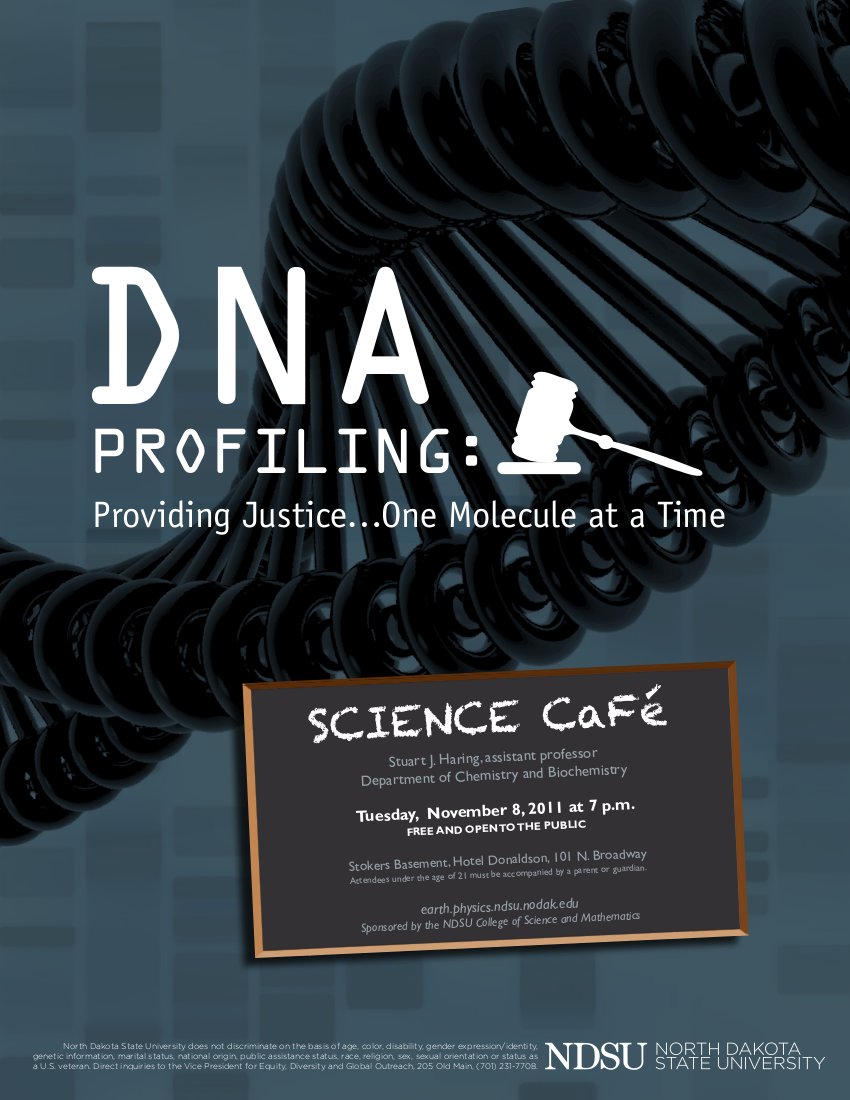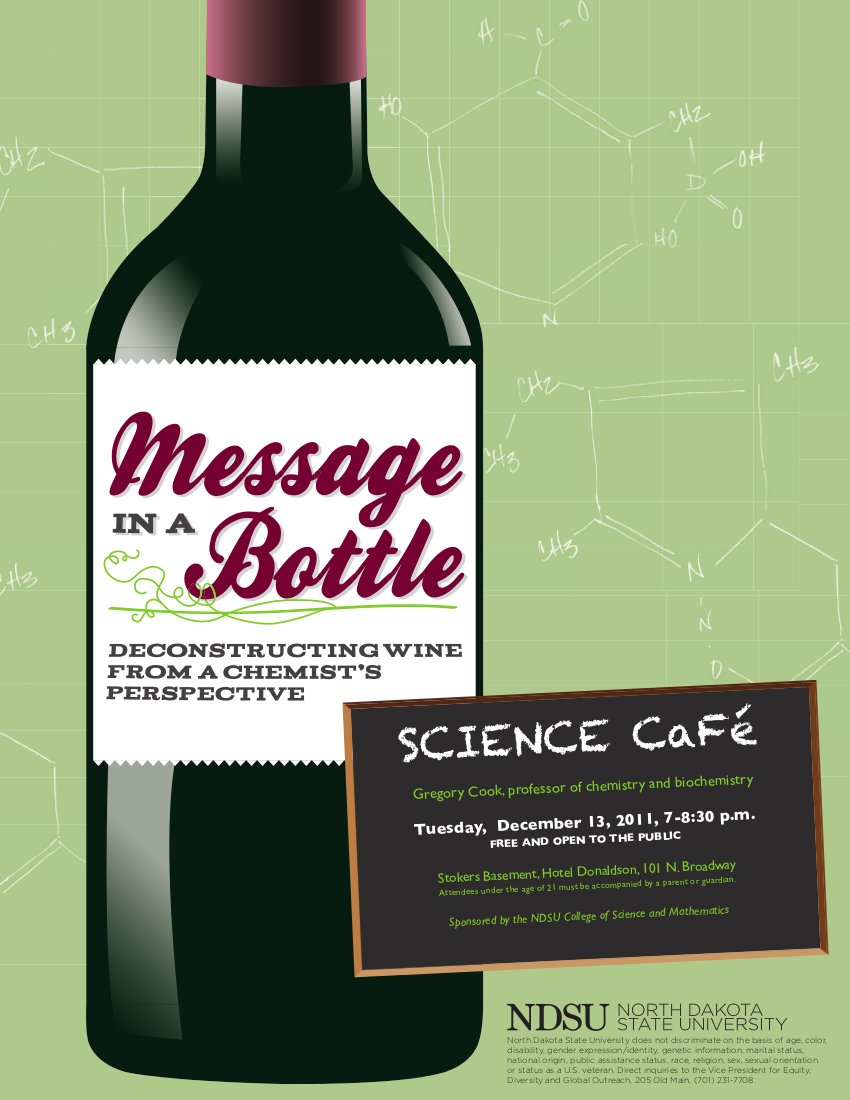
Energy and our future: What is the problem, how big is it, and what are our options?
Kenton Rodgers
Department of Chemistry and Biochemistry, North Dakota State University
In today's world, discussions of energy seem to be dominated by two overarching points of view, one promoting a change in how we power our societies and one opposing it. The driving force for change is motivated by concern over continued use of energy derived from fossil fuels because of its effect on the environment and future quality of life. This point of view is typically rationalized in terms of apocalyptic scenarios for future generations. Alternatively, the subject of energy evokes a defensive posture from which economic and political interests are staunchly defended. By nurturing a fear of what could happen if we change how societies are powered, this point of view typically promotes the status quo. Public discourse related to our energy future is often emotionally and politically charged, in part because opposing points of view both use fear tactics to influence the way the general public thinks about energy issues. Nevertheless, most people seem to agree that our societies operate through the use of very large amounts of energy and that the amount is getting larger. The evening's discussion aims to impart a sense of how big large is and how much bigger large could become during the foreseeable future. Whether or not projected energy needs can be met using current technology will then be examined as a way of gaining insight into our energy situation and the challenges to improving it.

Meditation is not what you think: Psychology research on the benefits of training the mind
Brian Ostafin
Department of Psychology, North Dakota State University
What has psychological science learned about how the mind works? One recent advance involves a number of findings suggesting that how we pay attention (or not) to our ongoing experience contributes to our happiness and creativity as well as to the treatment of psychological disorders. The development of mindfulness has been defined as “paying attention in a particular way: on purpose, in the present moment, and nonjudgmentally.” This presentation will review recent research on the benefits of practicing mindfulness meditation. The talk will have a focus on data from our lab regarding how such attention training can help people overcome the detrimental influence of habitual (automatic) patterns of thinking and behaving.

DNA Profiling: Providing Justice ... One Molecule at a Time
Stuart Haring
Department of Chemistry and Biochemistry, North Dakota State University
Question: What do you take with you every day and leave almost everywhere you go? Answer: DNA. Whether in court cases or natural disasters, it is often of critical importance to establish “beyond a reasonable doubt” the ownership of evidence or remains. This can be quite difficult, especially when traditional methods of identification (e.g., video, eyewitness, fingerprints, etc.) are not available. Enter deoxyribonucleic acid (DNA). This biological molecule is contained within each cell of the human body, and although everyone's DNA makeup is very similar, there are many regions of DNA that are unique to each individual. Much like gender, height, weight, hair/eye color, and identifying marks, the variable DNA regions can also be used as unique personal identifiers. Although DNA analysis has been around for over 25 years, it is only recently, as more rigor has been established for evidence collection and handling and more reliable and efficient techniques have been developed, that DNA analysis is becoming the accepted choice to establish identity “beyond a reasonable doubt”. This discussion will address exactly how DNA is analyzed and how this information can be used to convict or exonerate, identify missing persons and victims of disasters, and confirm or deny paternity. From “If it doesn't fit, you must acquit!” to “Who's your daddy?”, forensic DNA analysis is rapidly becoming THE star witness in identity determination.

Message in a Bottle: Deconstructing Wine from a Chemist's Perspective
Gregory Cook
Department of Chemistry and Biochemistry, North Dakota State University
In Vino Veritas, in Latin translates as, “In Wine [there is] truth.” The consumption of wine in the US has been rising steadily for at least the last 15 years. This has been partly spurred by recent press touting the health benefits of wine. From heart disease to cancer to Alzheimer's, wine seems to be a magic elixir to cure all. But what is wine and is it as healthy as we are told? How is wine produced? What are these antioxidants? How do you tell if a wine is corked? Where does that vanilla flavor in my wine come from? How can wine prevent cancer? These are some of the many questions to be explored as we take a journey from grape to bottle from a taster's and a chemist's perspective.